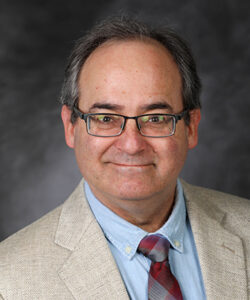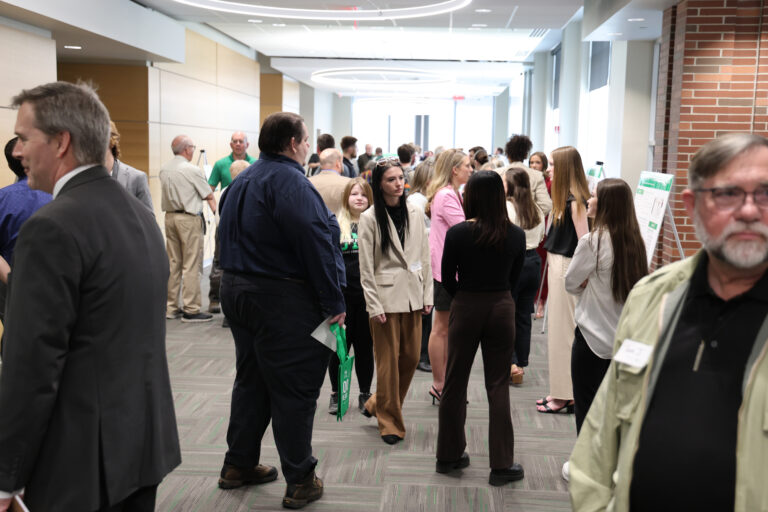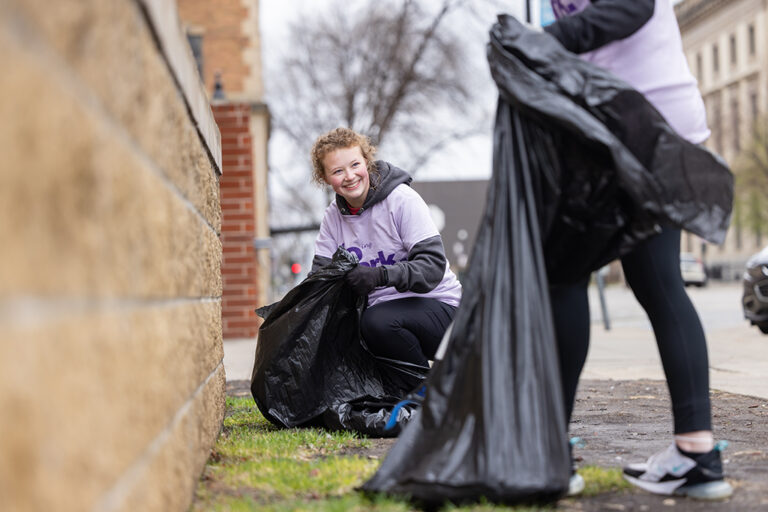It’s a ‘we’ thing
That’s leadership, says Sue Shirek, the former Grand Forks police officer who now runs the Northlands Rescue Mission

A familiar motif in The Family Circus, the most popular syndicated comic strip in the world, is The Dotted Line: a panel that shows 6-year-old Billy being dispatched from the family’s suburban home to go do an errand for Mom.
“So Bill will start here,” on the front doorstep, said Sue Shirek in her 18:83 Speaker Series talk last week.
“He’s supposed to take a letter to the mailbox. And he’ll go climb a tree, he’ll run and find a dog, he’ll stop and talk to somebody.” In fact, Billy will do a big loop all around the yard (and sometimes the town), his meandering path tracked by the cartoonist’s dotted line, as the young boy’s five-minute errand turns into a fun and circuitous adventure.
“Well, that’s kind of the career path I took,” Shirek said.
“I’ve been a waitress. I’ve run my own business. I’ve been a police officer; I had a whole career doing that.
“I was an international trainer for a gang-prevention program. … I was a school resource officer.”
Today, Shirek is the executive director of the Northlands Rescue Mission, Grand Forks’ emergency homeless shelter. And if you think she has picked up some useful insights about leadership over the years, you’d be right.
The 18:83 Speaker Series, held on Wednesdays in the UND Memorial Union, is designed to help listeners learn lessons in leadership from campus and community leaders in a “TED Talk” format. Speakers time their weekly presentations to last for around 18 minutes and 83 seconds, a number that coincides with UND’s founding year.
In Shirek’s case, one thing she has learned about leadership is this: Do not mistake occupying the top slot for being royalty.
If you look at an organizational chart of the Northlands Rescue Mission, where Shirek is executive director, “I’m up in this one square at the top,” she said. Then below are “the upper-level management, the mid-level management and all these people who do the work.”
And given that she’s the one who’s perched atop that pyramid, “it looks like I should have a tiara,” she said with a laugh. “But I don’t, and I don’t want one.”
Because “in reality, I don’t sit in a castle … and approve and bless things.” Instead, “I’m responsible to those people. I’m responsible to the people who work in our facility to ensure that they have a good, safe place to work. … I’m responsible to a board of directors. … I’m responsible to the community at large – the people who send in a $3 donation, or who make a $10,000 donation.”
As director of a nonprofit, Shirek also must follow the law and respect the wishes of foundations and other big donors.
“And most important, I’m responsible to the clients we serve every day – to provide a place where there’s dignity, a place that’s safe, a place where they can get back on their feet and where they are human beings.”

A part of the ‘we’
Speaking of that pyramid-shaped organizational chart, now imagine tipping it clockwise, Shirek suggested. That would put her name to the far right of an NCAA March Madness-like bracket, “and it looks like I won the Sweet 16,” she said.
But that’s not the case, either: “I don’t get to be in my position without all of those other people way over here,” on the bracket’s left side, she noted. Moreover, the organization itself can’t succeed without all of the other stakeholders – the directors, the clients, the community – whom Shirek mentioned earlier.
“In other words, it’s not my Sweet 16. It’s ours,” she said.
“It’s a ‘we’ thing.” And that’s not just limited to the building’s employees or inhabitants: If you’re a caring member of the Grand Forks community, “you’re part of the ‘we.’ “
The key insight, Shirek said, is that leadership is not the person. Leadership is the people – the people whom the leader does his or her best to inspire.
In other words, “leadership is about getting people to follow along with you,” she said. “You have to earn the trust of the people you work with and the people you’re involved with.”
And to be a good leader, you have to understand who those people are – and how you can best enlist them, so that they’ll happily help get the job done.

From police to nonprofit work
With that in mind, Shirek’s transition from police officer to executive director of a homeless shelter is easier to understand, she suggested. In her new position, she finds herself better able to help her clients than she could when she was walking a beat.
As a police officer, “I worked with a lot of people on the street for whom the only option was arrest,” she said. “And that’s not the answer. Arresting somebody doesn’t fix the problem.”
Now, at Northlands, “we have the opportunity to bring people in,” she said. “They come into our offices, and we can sit them down and say, ‘What’s going on in your life?” Is there some way that the mission can help, or some problem that the organization can help fix?
For Shirek, that’s a lot more fulfilling than simply saying, “You’d better move along now, or you’re going to be arrested,” she said.
When the Northlands Rescue Mission works with a client, “it’s like peeling off the layers of an onion,” Shirek said.
“You get to the core of what’s going on, and you can see the person. And when we see the person and what has impacted them in their lives, that’s when we can help them make change.”



